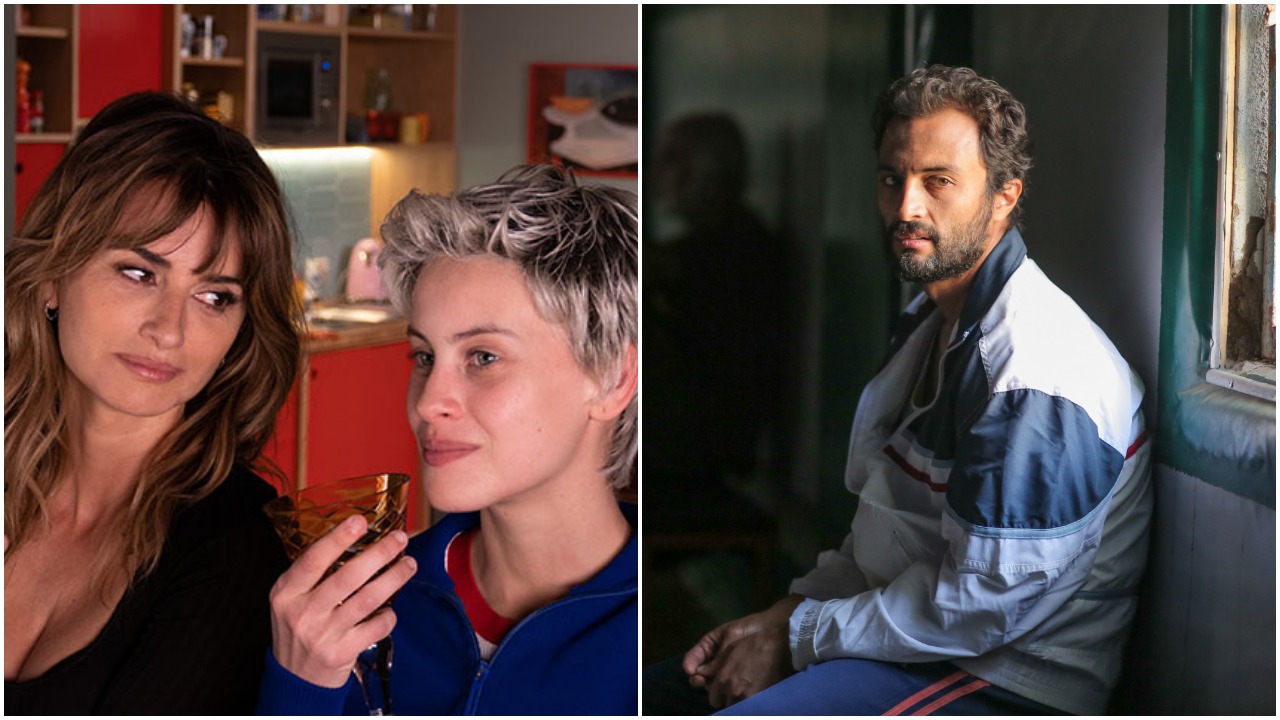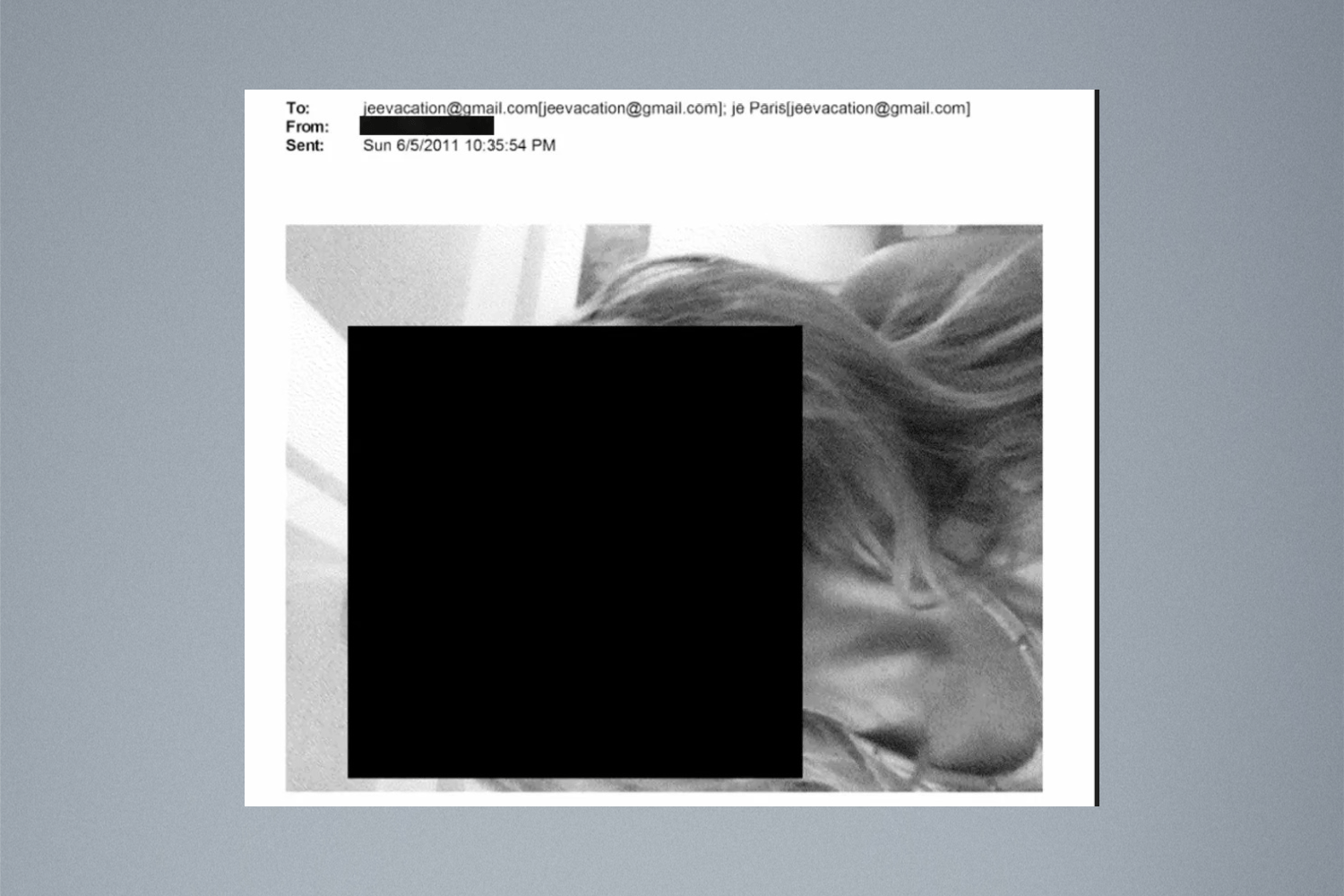Whenever Rahim Soltani (Amir Jadidi) enters a new situation from which he needs to gain something—which is essentially every situation—the expressions shifting across his handsomely bearded face reveal how the beleaguered Iranian man has lived his entire life.
First, an ingratiating yet never overbearing grin, suggesting how happy you have the potential to make him. Then his mouth draws shut plaintively and crinkled eyes entreat with puppyish submission. When, inevitably, disappointment arrives, Rahim sinks into a sulk, as though to punish you for denying yourself the pleasure you could have had by satisfying him.
“I was fooled once by his hangdog look, that's enough,” grumbles Rahim’s vengeful creditor Bahram (Mohsen Tanabandeh) as he rejects the latest makeshift plan to pay him back. Bahram has been holding Rahim in prison on his debt (which you can apparently still do in Iran), but while out on a two-day leave, the debtor believes he’s finally found a way to purchase his freedom. His girlfriend, Farkhondeh (Sahar Goldust), has found a purse containing gold coins—enough, he suspects, to make a down payment to Bahram if his brother-in-law will secure the remainder.
From the very start of Asghar Farhadi's A Hero, Rahim is making unlikely promises based on hopeful futures, yet you want him to succeed. You can see how this guy plunged into so much debt, and also why he got so many second chances.
When the coins turn out to be less valuable than expected, Rahim (in a fit of piety or pique, it’s not quite clear) decides to return the purse to its owner. The prison authorities call in the media to celebrate this good deed—Rahim deserves the praise, after all, and it won’t look bad for the institution to showcase a model prisoner like that on TV either. Rahim is leery at first, because he’s still married and can’t reveal that it’s Farkhondeh who actually found the coins. No biggie, a prison official assures him, just fudge things a bit. And so Rahim does, presenting himself in the most virtuous light, glossing over inconvenient facts, embellishing details to make a better story.
At first, things are looking up for Rahim. A charity raises funds to help pay his debt. He’s promised a job. Even his distrustful son Siavash (Saleh Karimaei) learns to master his stutter as the community’s esteem for his father rises. Only Bahram is unconvinced, grimacing with folded arms in the background like a foiled villain. But each minor untruth calls for another—none truly damning, but each potentially destructive to the teller if revealed. As suspicions grow, Rahim brandishes a newspaper clipping and a certificate from a local council as a sign of his worthiness—his proof that he’s a good man.
To call A Hero tense is just another way to say it’s an Asghar Farhadi film, in which small but significant decisions gradually ensnare characters in inextricable situations. But where the Iranian director’s past movies generated much of their drama through their pacing, A Hero is unrushed and lived-in—food and tea are served, niceties are exchanged, children fuss and fidget and play with electronics in the background, hearing more than they seem to and often than they should. The bazaar where Bahram does business, the construction site where Rahim’s brother-in-law works, each home we enter, even the prison—all feel like fully realized social spaces where life is abuzz.
As Anthony Lane pointed out in the New Yorker, A Hero rests on what’s essentially a screwball comedy premise, a la Hail the Conquering Hero: An undeserving schlub accepts praise under false pretenses. But none of the characters is cartoonishly drawn here, and all have self-interested but not contemptible reasons for acting as they do. The prison may benefit from Rahim’s fame, but they’re not being overly manipulative. Bahram, unattractively grasping as he seems at first, has his justifications for resenting Rahim. Even the smug bureaucrat who questions Rahim’s story has good reason to be doubt him.
As always, Farhadi skirts the line between social critic and observer of human behavior. Is he showing Iran as a place where every individual has to bend the truth just to survive, but using a plot about the complexity of human motives to make it more palatable to censors? Or is he simply telling a universal story of how deception spreads that’s set in the culture he knows best? Both, most likely, and that makes A Hero all the richer an experience.
Not even the striking final image of Parallel Mothers quite explains why Pedro Almodóvar chose to examine the legacy of the Spanish Civil War through the lens of a melodrama about babies swapped at birth. The simple answer, of course, is that he’s Almodóvar—theatrical excess has always been his path to insight. But to be less glib, the structure of Parallel Mothers allows the movie to hover around questions of interdependence—of what we owe our families, the past, each other—that would feel clumsy if posed directly. And who’s to say what’s “unrealistic” in a nation where a fascist past has been papered over to ensure normalcy?
Two women meet in a maternity ward, where they learn that both of their pregnancies were unplanned, and that both of the fathers are absent. Janis (Penélope Cruz) is a nearly 40-year-old professional photographer. She’d hooked up with one of her subjects, a married forensic anthropologist (the sonorous Israel Elejalde) who agreed to help her find the unmarked grave of a grandfather murdered by Franco’s goons during the war. Ana (Milena Smit) is a teen from a well-off but dysfunctional family who’s not even sure who her baby’s father is.
Soon the lives of the two mothers are intertwined, and the movie settles into a lulling but inconsistently even-keeled pace, floating day to day until the tensions ignored underneath explode into impulsive episodes. Ana, estranged from her own mother, moves in as Janis’s housekeeper and babysitter. But Janis watches her baby Cecilia’s features grow unfamiliar and her skin darken, and she begins to doubt that this is her child. Her discovery, long-delayed but unsurprising, is typical of Parallel Mothers—we often suspect what will happen long before the characters will, because the truth is always easier to see from an outside perspective.
The film is teeming with mothers. Teresa (Aitana Sánchez-Gijón), Ana’s mother, is haunted by her incompatibility with the biological task thrust upon her. She lost much of her acting career when her daughter was born, and so when she gets her big break, she leaves on tour even though her granddaughter has just been born. Janis becomes a surrogate mother (and much more) to Ana. Fathers, if they exist, are assumed to be of no use. As always, Almodóvar is an empathetic, respectful, even adoring student of the world of women.
And has any male director ever doted as reverently on his favorite actress as Almodóvar does with Cruz? It was almost too on the nose when he essentially cast her as his long-suffering mother in the quasi-autobiographical Pain and Glory. Though Parallel Mothers doesn’t bear its gravitas as weightily as that predecessor, it has the similar autumnal feel of the aging master, now 72, returning to his past muses and themes, to come to terms with the past without sacrificing his own idiosyncrasies. With their bright bourgeois living spaces, familiar actors, and telenovela scenarios, his films have become a comfortable corner of the arthouse to curl up in—once startling, now more quietly puzzling.
The film has nearly as many parallels as it does mothers, but the most notable arises when the time comes to exhume her grandfather, Janis takes DNA swabs from her elderly relatives, just as we’d seen her done earlier to establish Cecilia’s maternity. In both cases, she’s seeking certainty and closure, not knowledge so much as the evidence that makes it undeniable. Just like nations, individuals have pasts they often wish to deny, and they can’t move on without truth and reconciliation.
Special Screenings This Week
Thursday, Jan. 13
Evil Dead II (1987)
Parkway Theater
Sam Raimi’s gruesome, hilarious classic, in 35MM. $9-$12. 8 p.m. More info here.
Friday, Jan. 14
Spike and Mike's Sick & Twisted Animation Festival
Parkway Theater
Fourteen shorts from the groundbreaking animation curators. $10-$15. 8 p.m. More info here.
Devil in a Blue Dress (1995)
Trylon
Denzel Washington is L.A. private eye Easy Rawlins. Shoulda been a series. $8. 7:00 p.m. Saturday 9:15 p.m. Sunday 3 p.m. More info here.
One False Move (1992)
Trylon
Carl Franklin’s underseen crime-drama about a trio of L.A. fugitives who meet an unexpectedly formidable foe in a small-town Arkansas sheriff. $8. 9:15 p.m. Saturday 7 p.m. Sunday 5:15 p.m. More info here.
Saturday, Jan. 15
Paris Is Burning (1990)
Paisley Park
A classic look at the underground queer ballroom scene of Black and Latin drag queens and voguers of the late ’80s. $25. (Plus $20 for onsite parking.) 7 p.m. More info here.
Pitch Perfect (2012)
Parkway Theater
More like ugh capella. $10-$15. 1 p.m. More info here.
Sunday, Jan. 16
Shampoo (1975)
Alamo Drafthouse
While hairdresser Warren Beatty is busy banging his hot clients, the U.S. elects Nixon. Oops. $10. 3:30 p.m. More info here.
Live Flesh (1997)
Trylon
A single gunshot changes the lives of four people in this Almodóvar film. $8. 7:30 p.m. Monday-Tuesday 7 & 9:15 p.m. More info here.
Monday, Jan. 17
Betty White: A Celebration
AMC Eden Prairie 18/AMC Rosedale 14/AMC Southdale 16
RIP. $13.44. 1 & 7 p.m. More info here.
Tuesday, Jan. 18
The Lord of the Rings: The Two Towers: Extended Edition (2002)
Alamo Drafthouse
Remember: Barad-dûr and Orthanc. Don’t let anyone tell you otherwise. $10. 6:30 p.m. More info here.
Wednesday, Jan. 19
Alien Intruder (1993)
Trylon
Oh no! It’s the future (2022!) and a VR babe has come to life to kill us. $5. 7 p.m. More info here.
Opening This Week
Belle
A critically acclaimed Japanese animated version of Beauty and the Beast with a social media twist.
Scream
Better than I expected. But you don't want to know how little I expected.
Ongoing in Local Theaters
American Underdog: The Kurt Warner Story
Encanto
Ghostbusters: Afterlife (read our review here)
House of Gucci (read our review here)
A Journal for Jordan
The King's Man
Licorice Pizza
The Matrix Resurrections
Nightmare Alley (read our review here)
Red Rocket
Sing 2
Spider-Man: No Way Home
The 355
The Tragedy of Macbeth (read our review here)
West Side Story (read our review here)






